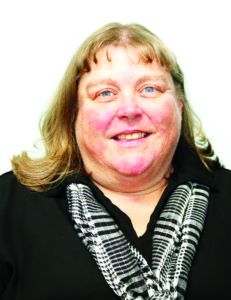Kneading Faith
By Fran Lavelle

Fran Lavelle
I remember when I was in fifth grade I wanted to learn how to play the saxophone. My parents made it clear that I would not get a brand-new saxophone until I showed I was committed to and had an aptitude for learning how to play it. I wasn’t, and I didn’t. The old saxophone that we borrowed from family friends was quickly returned and replaced with drum sticks. They used the same reasoning with my desire to buy a horse. I was able to make said purchase after I had demonstrated that I would take care of a pony that we boarded at our farm (ironically for the same family who lent me the old saxophone.) I faithfully took care of Queenie and demonstrated that I would do well in caring for a horse of my own. Wildfire the Arabian/Quarter horse was my pride and joy until the day we sold our farm and I could no longer keep her. I take this walk down memory lane to illustrate how our appetites, aspirations and ambitions develop and deepen as we age. Looking back, I see that my parents were teaching me responsibility and lessons in discernment. They were also giving me opportunities to see what I excelled at and what I struggled with – like that old saxophone.
Several years ago, I was asked to give a talk on vocations to an RCIA group. The more I thought about the subject and what insights I may have to share, the more I realized that our traditional view of vocations needed to be reexamined. Growing up, any lesson or homily on vocations would include a short description of the three states: ordained or consecrated, married, and single. It sometimes felt like one was being asked to order off a menu, “I’ll take a married vocation with three children, please.” Or worse yet, a one and done proposition, “I’m sorry you chose a single vocation in your 20s, don’t even think of getting married at 45.” Vocation Q&A sessions often included the timid individual who, with great effort, asked the question, “What if God is calling me to be a sister/priest and I don’t want to be one?” There seemed to be so much mystery and a good dose of fear in the dreaded vocation talk that everyone was happy when it was over, so they could put it out of their minds until the next time the subject came up.
Because of this many of us were not challenged to ask the question, “God what are you calling me to?” Or make the offer, “Take me Lord and do with me what you will.” I had the good fortune to have spiritual director when I was in my late 20s who invited me to make that very offer every – time I received the Eucharist. For a solid year, I did. I had thought that I may be called to a women’s religious community. About a year later I remember telling my spiritual director that I had taken his advice, but nothing seemed to be happening. He laughed, at me – not with me, and said that if I was being called to be a Sister that I would have been moved to act on it already. With an open heart and great discernment, I am confident that in that simple prayer God led me to where I am today. Mind you the clouds never parted, nor did I hear the voice of God give me directions; it doesn’t work like that. But I have been steadfast in that post Eucharist offering to this very day.
I remember a priest once asked in a homily, “What would you have if you got everything you wanted, right when you wanted it?” I looked to my friend and whispered, “At least seven ex-husbands.” We idealize love, marriage, raising children. We romanticize what our life will be like when… The reality is often quite different from what our dreams are made of. In my teens and early 20s, I truly wanted a large family. I wanted to live somewhere in the foothills of the Appalachian Mountains on a large farm with lots of horses and livestock. Childless, single and writing this from my home in Starkville, Mississippi, my life does not look like anything I had expected then. But I would not change anything about my journey. Too often we need to be in control and do it Sinatra style-my way. How many times have you willfully chose what you wanted despite what you really felt God was calling you to? How many times did those decisions end in disaster?
Discernment is never a “one and done” proposition. Discernment leads us to not only honestly know ourselves, but to also allow God to guide us in our journey. In my 20s or even 30s, I could not have named my vocation. I am not sure I really need to. I have come to understand that the most important thing I can do is ask God how I can love and serve more fully. If we love well, we will live well.
“Love is the fundamental and innate vocation of every human being” CCC 2392
(Fran Lavelle is the director of the Department of Faith Formation for the Diocese of Jackson.)
